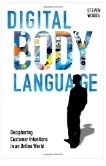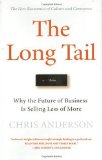PRMM Interview – John Grosshandler

As part of the PRMM Interview series, I am interviewing thought leaders in PR, marketing, social media, and virtual events to hear about innovations, trends and technologies impacting our industry. This week, I asked virtual events vetaran, John Grosshandler is Director of Virtual Engagement with Maritz, to provide insight on the evolution of virtual events, challenges facing the industry and future trends. Here is a brief bio (Note: I was previously employed by Inxpo):
In 2004, John launched a first of its kind virtual trade show called eComXpo which became the highest-grossing, longest-running virtual trade show ever held. In 2005, after initially being their first customer, John joined InXpo, the virtual event platform provider that powered eComXpo. While there, he was the Virtual Event Strategist on hundreds of virtual events for associations (e.g. HIMSS, National Association of Realtors), corporations (e.g. Cisco, ATT) and publishers (e.g. UBM, Ziff Davis). While at InXpo, John authored the virtual event industry’s first Best Practices Guide. In his role at Maritz, John is responsible for their virtual event offerings, including supporting their channel partner Freeman.
Tell me a little bit about yourself and how you got into virtual events?
My background has been in sales and marketing roles for cutting edge technology solutions. After a successful 8 year run at a software firm pre/during/post the tech bubble, I had the opportunity to start my own business. In 2004, I launched a start-up around the idea of a virtual trade show aimed at eCommerce marketers. While there had been a number of attempts at virtual trade shows before mine, most of them were quite boring and I thought a business could be built around a more engaging type of virtual event.
How has the industry changed since you’ve started?
The evolution in this space has been extraordinary on many fronts. First has been the realization that the technology is only one component of a successful event, and that you need to spend at least as much time on the strategy, content and marketing. As a result, agencies like Maritz, Freeman and others are building practices to help event organizers put on higher quality events with less effort. Another evolution has been around the types of events held. From 2004-2008, almost all the action was publishers putting on virtual trade shows to replace lost revenue from their declining print ad sales and subscriber base. In 2009, you started to see associations more effectively creating hybrid extensions to their physical conventions. 2009 is also when more and more corporations starting leveraging virtual for a variety of events, ranging from sales meetings to user groups. A welcome change has been the technology platforms themselves, which increasingly have very robust functionality and can handle ever-increasing numbers of virtual attendees. Finally, there’s less talk these days about purely virtual events, and more about hybrid and blended events which I believe is the future.
Adoption of virtual events & meetings technology has increased significantly due to the recession. What challenges do you see for mainstream adoption of this technology?
Although the adoption has increased significantly, we’re still only scratching the surface. One report suggests the virtual event space will grow to $18 billion in five years, so we’re still in the “early adopter” phase. To cross the chasm to mass adoption, I think three things need to happen a) the technology needs to become more self-service and less expensive; b) virtual event platforms need to be effectively ported to mobile devices and c) events funded by virtual exhibitors need to deliver more value to those sponsors.
2011 is just around the corner and it’s the time of year for future predictions. What do you see happening for the industry in 2011?
I see 2011 as the “Year of the Hybrid”. The idea that more and more physical events will have virtual extensions, either as pre, during or post the physical event. Whether those virtual extensions are focused on driving more attendees to the physical event, or helping you reach others who weren’t able to make it to the physical event, these extensions are the “killer app” for virtual technology.
Any additional thoughts that you would like to share?
An exciting new use of the technology allows corporations to create virtual extensions to their physical trade show booths. Even if the show organizer doesn’t have a virtual extension to the event as a whole, top tier sponsors are realizing that their own virtual extension can help build buzz, drive attendance to their physical booth and provide a more effective follow-up mechanism for booth visitors, as well as those that didn’t make it to the physical event.
Technorati verification: 9ZGN6GBWBMAT
1 Comment
Leave a comment
Additional comments powered byBackType
About
Favorite Service
Recent Comments
- on Going Virtual Isn’t Necessarily the Answer to Replacing Your Physical Events
- on Going Virtual Isn’t Necessarily the Answer to Replacing Your Physical Events
- on Going Virtual Isn’t Necessarily the Answer to Replacing Your Physical Events
- on Going Virtual Isn’t Necessarily the Answer to Replacing Your Physical Events
- on Going Virtual Isn’t Necessarily the Answer to Replacing Your Physical Events
Ads by Google
Favorite Books
Marketing Blogs
PR Blogs
- KD Paine's Measurement Blog
- Micro Persuasion
Virtual Events & Meetings Blogs
- Cisco Virtual Environments
- It's All Virtual
- The Webinar Blog
- Virtual Edge Institute

 Follow
Follow Cece Salomon-Lee is director of product marketing for Lanyon Solutions, Inc. and author of PR Meets Marketing, which explores the intersection of public relations, marketing, and social media.
Cece Salomon-Lee is director of product marketing for Lanyon Solutions, Inc. and author of PR Meets Marketing, which explores the intersection of public relations, marketing, and social media. 



[…] This post was mentioned on Twitter by Emilie Barta, Social27Hub. Social27Hub said: RT @dshiao: PR Meets Marketing (@csalomonlee) interviews #virtualevents pioneer John Grosshandler (@virtualevents): http://bit.ly/dky44a […]